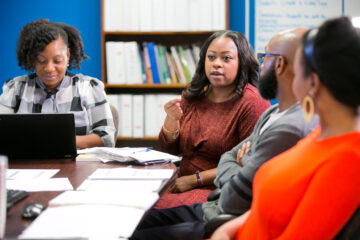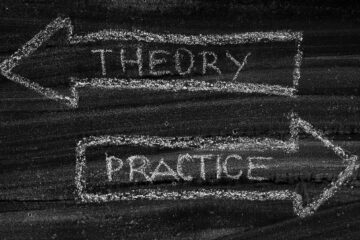When students are treated like adults, they act like it. When teachers are respected, they do their best work. Those aren’t hypotheticals, but lessons Amanda Ripley learned while studying abroad vicariously through the lens of American teenagers.
Ripley is the author of The New York Times best selling book The Smartest Kids in the World. A documentary with the same name and based on the book was recently released by Discovery+. The book and movie both follow American high school students studying abroad in different countries around the world. Ripley’s book intersperses their experiences with research and data about why the teens’ adopted countries outperform their home states.
Ripley, an investigative journalist, spoke with NCEE President and Chief Operating Officer Jason Dougal about what she learned through interviews with American teens who lived for a year in countries with high-performing education systems.
Dougal and Ripley conclude there’s a coherence in other countries that’s often lacking in the U.S.
“Part of how you get that coherence is that the actions of adults match the words of adults,” Ripley said. “Saying education matters and acting like it are two very different things. And kids pick up on that like heat-seeking missiles.”
Here are some other highlights from what Ripley told Dougal during their conversation, but be sure to watch the entire interview above for more.
Ripley, on more rigorous education systems:
There is a common thread that I saw in the countries: there’s a level of rigor in the way that teachers are trained. And there is a degree of clarity that we don’t necessarily always have [in America] about what matters when it comes to education.
In general, not always, [foreign] students have less homework and fewer tests than most American kids, but the tests and homework they do have are more rigorous and the stakes are higher for students themselves. Finland is often held up as an example of the Holy Grail of humane education. And there’s a lot of reasons for that, but lost in that sometimes is the fact that in Finland, while students take very few standardized tests, they do take a lot of tests. They’re designed by their teachers and that’s partly because teachers are very well trained and carefully selected. So there’s much more of an ethos of rigorous assessment that’s customized by the teacher and there’s more trust in teachers to do that right rather than farming it out to a vendor for the cheapest possible rate. But even in Finland, there is a standardized test. It is taken by seniors before applying to university and it takes 50 hours over three weeks. It’s a really challenging test.
Why students work harder:
Kids rise to the level of their peer culture when it comes to how important they think rigorous learning is. Especially adolescents are extremely focused on what their peers are doing. There’s a great example of a girl I met in Korea named Jenny, who had lived half of her life in the U.S. and then moved back to Korea. And what she talked about was how different she was in each place. In Korea, everybody worked really hard and took school really seriously, so she did too. And then in [America], school was much lower on her priority list.
How sports are more of a priority in American schools:
It’s an interesting, unique characteristic of American high schools that sports are so central to the core mission. If you’re trying to win a football championship, or even participate in football, it directly drains attention, focus, and resources. Other countries play sports—kids love sports in every country—it’s just not part of school.
A very different teaching profession:
Anyone who has seen a great teacher or been a great teacher knows that it is not different from being the CEO of a company; there is a lot that is demanded of you and it requires a lot of support. And it requires coaching from other great teachers, peer accountability, and sharing of information and collaboration at a very high level. [Collaboration is] not built into our schedules for teachers. American teachers have very little time to collaborate and it’s not how we train them.
In most American education colleges, almost everyone is admitted. It’s not very rigorous, and then the choke point comes when they try to get jobs, particularly for elementary school teachers. What you see in these other countries is they filter teachers and coach teachers before they become teachers, in addition to after. Most education superpower countries shut down mediocre teacher training colleges decades ago and it conveys to the rest of the country, especially to kids and parents, that this is hard and important work.




